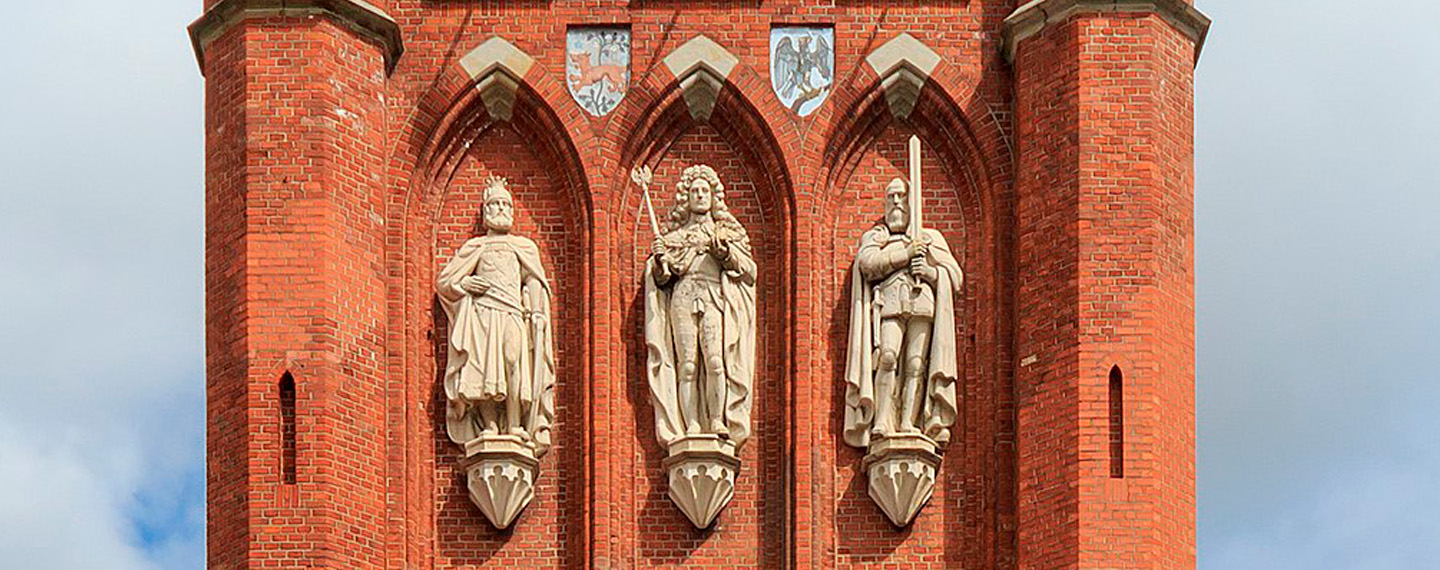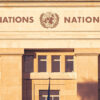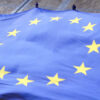In the spring of 2005, on a tourist boat sailing around the canals of St Petersburg, members of the NATO-Russia Council were enjoying a chance to relax and network. At the meetings where the present writer participated in the capacity of expert –invited by the Spanish representative to NATO, Pablo Benavides– the delegates spoke freely, including the Russian Foreign Affairs Minister, a post already held by Sergey Lavrov. Dispensing with all pretence, it was a useful format for exchanging points of view and fostering cooperation and stability. It was a time when major agreements were in force monitoring arms and transparency. The government of Vladimir Putin –President since 1999– was not of course happy about NATO enlargement. Two years later, in February 2007, there would be a hard-line speech at the Munich Security Conference, and at Bucharest in 2008 the prospect of NATO membership was opened up to Ukraine and Georgia. Since then, the man who described the break-up of the Soviet Union as ‘the greatest geopolitical catastrophe of the century’ has been continuously rebuilding his armed forces and the post-Soviet space –an imperial Russian rather than communist space– and accumulating financial reserves. If with the latest step, the invasion of Ukraine, Putin’s Russia gets its way, a new cold war is in prospect. Europe, greater Europe, could have turned out otherwise, a project of everyone.
New cold war
The first point is that the Cold War was based on a degree of stability. Unless this new cold war (to refer to it in an identifiable way) can be avoided –and much depends on whether Putin cements or loses power with this invasion and the reactions against him it has unleashed– it is going to be of a new order. Restoring mutual trust is going to prove extremely difficult, let alone returning to 2005 or before, or undoing the damage done since 24 February, or since 2014 (the annexation of Crimea and the occupation of part of Donbas). This new cold war will take place in a context of globalisation and interdependence that did not exist prior to 1989 (something that multiplies the effect of sanctions), and the added factor of China now having the status of superpower will weigh heavily. It remains to be seen, given the rivalry between the US and China, whether it will be a single cold war where, in simplified terms the world may divided into two blocks, or multiple and differentiated, each conflict with its own characteristics. Beijing may, however, act as a mediator with Moscow in seeking an exit from this war not to its liking.
The war in Ukraine will mean Europeans drawing even closer, due to dependence on the US, to Washington’s strategy on China. This is something that could really jeopardise globalisation (championed by the Chinese) and alter energy dependencies (possibly for the better if the crisis favours greener alternatives).
The timing of the Ukraine war is important. US military sources quoted in some media outlets estimate that the Russian campaign may need four to six weeks to achieve a ‘tactical seizure’ of Ukraine, but that the conflict could last 10-20 years, and that Russia will end up losing, in a way reminiscent of the disastrous Soviet occupation of Afghanistan between 1978 and 1992.
Beyond Russia’s deep-seated fear of NATO and the possible neutrality of what remains of Ukraine –a possibility President Zelensky was late to offer (it remains to be seen whether it will be too late in the talks underway on the ground)– there will be a need to confront Putin’s imperial designs, involving a potentially outcast, unstable and technologically isolated empire. The designs are still unclear, because the Russian President has not yet revealed if he wants to leave Ukraine emasculated with a puppet government, another frozen conflict, push for an enlargement of the Russian Federation or create a military commonwealth or association of ex-Soviet states or another system that may depend on how the Ukrainians themselves and the West now react. The only thing that Putin has said, ominously, is that sanctions ‘risk the future of Ukrainian statehood’.
Border of contact
Secondly, if Russia occupies or in some way absorbs Ukraine, the direct border between NATO and Russian military power will extend from 1,300 to 3,700 kilometres, raising new challenges at a time when major arms control agreements (INF, CFE and Open Skies) are no longer in force, having been scrapped by Trump and Putin. The danger of the cold war turning hot increases. There is an added factor: Putin lacks a Warsaw Pact, but with the enlargement of NATO he does have a Russian territory, Kaliningrad (formerly Emmanuel Kant’s Königsberg, the old capital of East Prussia) surrounded by NATO countries and access to the sea. Moscow may want to take advantage of its location in military terms.
More NATO than the EU
Third, this war is going to lead to increased military spending in an EU that has felt vulnerable and more united. Germany has taken a step forwards with the decision of Olaf Scholz’s coalition government to ramp up defence spending and procure cutting-edge operational armed forces. It is not alone. But what is new is that even its neighbours support German militarisation, albeit this time within the European and transatlantic framework. Western Europe now seems to be committed to the strengthening that the US has been urging for some time (it is also a chance to buy US material). And the EU has decided to send offensive military equipment to Ukraine.
Amid this frenzy, NATO holds all the cards for outdoing the EU in military terms. In a new strategy of containment and deterrence the rotating deployments on its eastern front may well become significant and permanent. The EU, while it is proving crucial in terms of economic and political sanctions (although restricted by its dependence on Russian oil and gas), has not managed to acquire real military clout relative to the burgeoning role of NATO in this crisis; NATO has even suggested extending its collective defence principles to include possible cyberattacks against critical infrastructure, another new factor. And will Finland and Sweden join NATO?
The return of nuclear arms
Fourth, nuclear arms are back; while they had never left the strategic equation, they lay dormant. The activation of Russia’s deterrent forces and Lavrov’s allusion to a nuclear war were more than a warning, and the Biden Administration wisely did not rise to the provocation. We could face the prospect of a new nuclear arms race and, if there is an escalation, possibly a new crisis akin to the Cuban missile crisis of 1962. It remains to be seen whether the Europeans will unite or be riven if it becomes necessary to respond to a Russian deployment of new intermediate-range missiles, a type curbed by the 1987 INF agreement that Trump recklessly renounced.
The battle for liberal democracy
Fifth, and more importantly, there is going to be an ideological battle. Rather than between communism and capitalism, the threat is to the liberal democratic system as opposed to autocracy. Putin fears the EU for what it represents (notwithstanding cases such as Hungary) in defence of liberal democracy. And disinformation and support for extreme right-wing movements in the West will remain a weapon for Putin, however much Russia Today and other propaganda tools are banned. The Russian regime has also muzzled Facebook in Russia to prevent dissent from spreading, although efforts will be made to foment dissent in order to undermine Putin.
The battle for liberal democracy is going to be crucial in the context of Putin’s Russia (much more so than in the case of China), because the West will want to undermine the Russian President’s social base. But the force of liberal democracy needs to be nurtured from within when it is in crisis, partly owing to the lack of an alternative or external pressure, unlike in the first Cold War. In the last 15 years, liberal democracy has undergone general decline. In 2005 half the people in the world lived in a democracy. Today it is only one in five according to the latest report from Freedom House on the global expansion of authoritarian rule. In this context, Spain has a role to play in the firm and reasoned defence of liberal democracy and the rule of law, within its borders, in Europe and in the world, although it has to bolster its own domestic institutions. The change of leadership announced in the People’s Party provides the prospect of greater internal agreement in this institutional arena.
Global issue
Sixth, this is not a regional European so much as a global issue. Russia has displayed its global aspirations in recent years, from Syria to Africa and Latin America. What is unfolding now is part of an historic phase of the West’s loss of power, and its values, in the world, despite its powers of human attraction.
Doubts about the US
Putin has committed an atrocity. But we in the West have made mistakes. We have not been capable of devising a joint strategy, either in the EU or in NATO, determining the nature of the relationship that the West wishes to maintain with a Russia we have underestimated.
Another factor, however, is that the US has ceased to be a reliable country owing to its deep internal rifts, although there is no other power of such dimensions that can replace it in the West. It is unreliable because the return of Trumpism and/or Trump –who described NATO as ‘obsolete’ and called into question Article 5 on collective defence– cannot be discounted, whether next November in Congress or at the presidential election in 2024. It is as well to consider potential futures, whether to avoid them or to be prepared for them.
Image: King’s Gate in Kaliningrad formerly Königsberg, Kaliningrad Oblast (Russia). Photo: A.Savin (WikiCommons), FAL (Wikimedia Commons).



